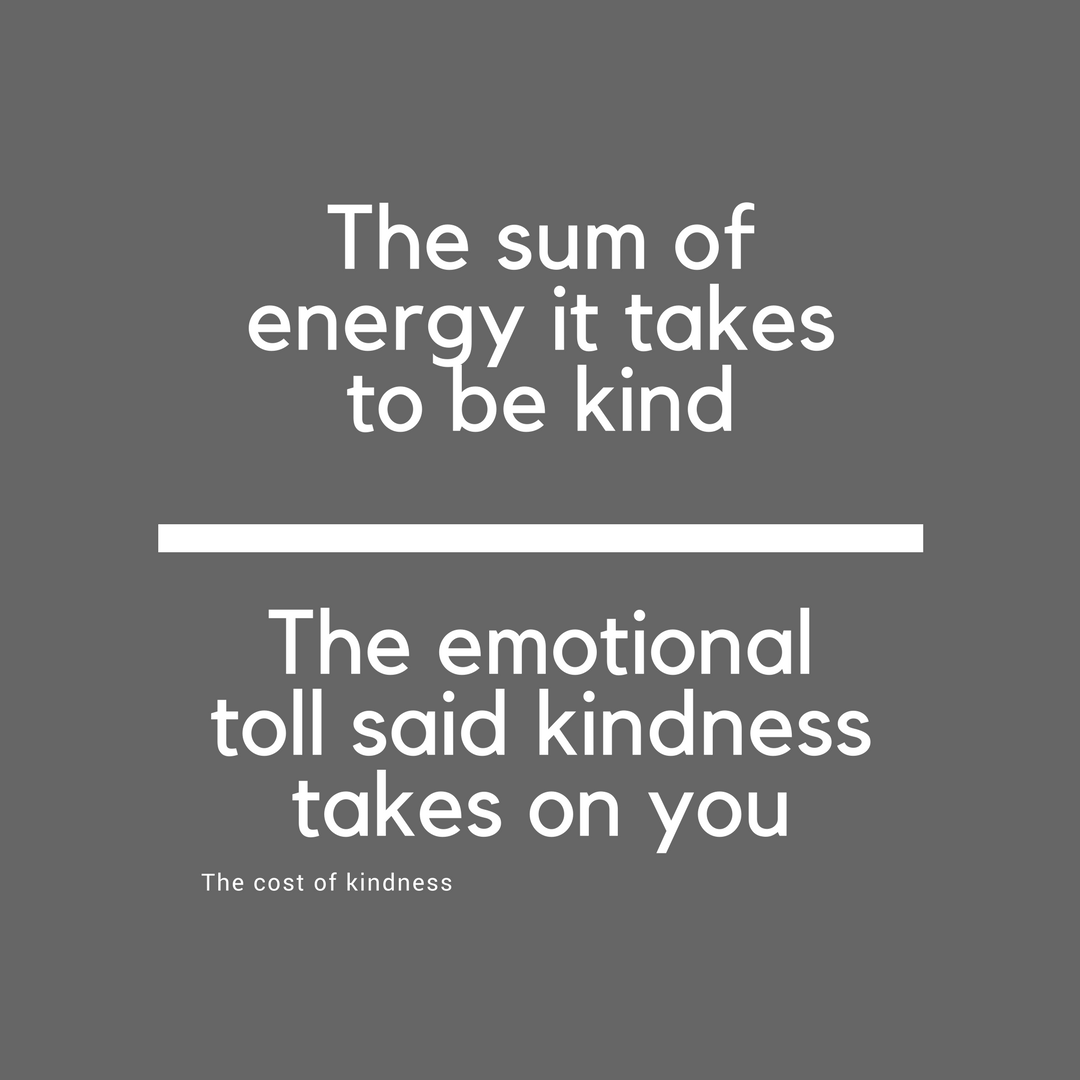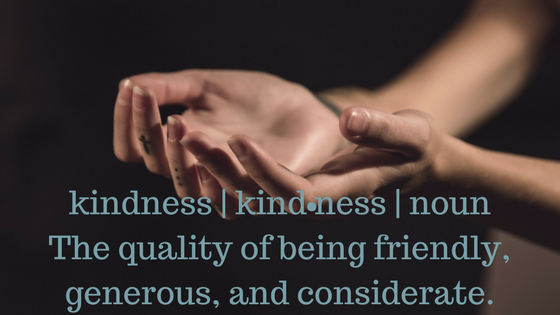I recently saw a Tweet about compliments:
Do you ever just want to support and blogger and tell them how FAB they are but every time you do you feel like they just think you’re a stalker and like really weird? Anyone?
— Petiteelliee (@petiteelliee_) March 6, 2018
I responded, saying that I get this a lot, but I also enjoy complimenting others. I also said that I reckon compliments should be free – “don’t expect thanks/gratitude/compliments in return and then you lose nothing by putting yourself out there, just the good feeling of the compliment giving”.
My last comment, I realised later, was a little glib (which I now feel hugely embarrassed about) and it didn’t really consider times where compliments (or kindness more generally) cost the giver a great deal.
How much does kindness really cost?
I suppose the answer to this is context-dependent and a bit complicated.
When interacting with strangers, I guess kindness costs the emotional toll of the potential embarrassment or upset of being ignored or a poor response.
When interacting with loved ones, kindness costs the energy you put into cheering them on or propping them up.
Kindness can cost people physically – by doing something tiring or strenuous to help a friend out. It can be a mental endurance test, too. For example, spending time with a toxic person as a show of solidarity to a loved one. When interacting with loved ones who are emotional leeches, kindness costs a hell of a lot.
Then there are acts of kindness you commit for yourself.
Acts of self-kindness
When being kind to yourself, the pay out is all the more complex. You might weigh up self-kindness against social expectation or cultural norms or external pressures or internal biases. You might pit self-kindness against your own expectations or goals or dreams.
Self-kindness should be a ritual; a habit instead of a fad. Unfortunately, we live in a society of infuriating oppositions.
Be the best – you’re not worth it.
Find your inner strength – you’re meant to be weak.
Be open – vulnerability is unattractive.
You deserve better – you’re the reason you’re not treated the way you want to be.
Nothing can stop you – why would you aspire to be something unrealistic?
It takes a great deal of courage to block out the negativity perpetuated by our society. It’s even more impressive when that negativity comes from the people who are supposed to lift you up.
Lora Mathis (a favourite artist of mine) talks extensively about self-care. I’ve written before about her concept of radical softness as a weapon – whereby living authentically; emotionally, is a form of political protest and you are weaponising your feelings in a positive way.
She is currently writing an essay called “Setting Boundaries as Self Care” (according to her Insta Stories) and I for one can’t wait to read it. Boundary setting is something I’ve been consciously trying to get better at. There are people I love, and those I don’t, who are negative for my wellbeing. I do my best to avoid putting myself in situations where I have to deal with that, now.
A friendship break-up two years back made me realise just how important it is for my wellbeing that I not put myself in positions where I know I’m going to be hurt, made to feel uncomfortable, or be surrounded by toxic negativity. It would wear me down and take days to fully recover from, because trying to make all that negativity bounce off you and not latch on and wear you down is bloody exhausting.
The value of kindness
Kindness is an invaluable, but not unending well. It’s a finite resource and you need to save some of that for yourself. I tried to come up with an equation to estimate the cost of kindness. This is overly simplified and definitely flawed, but in the broadest of strokes, I think the true cost of kindness is this:

If you find the toll to be much greater than the energy required to be kind, then you should evaluate whether that act is a necessary one to perform.
Finding ways to cut back on kindness is hard. Prioritising those you hold dearest may not actually reduce your emotional toll deficit by much, especially if a loved one is struggling through something right now.
The best way to ensure you don’t completely burn yourself out is to prioritise yourself. Use up all the energy you need to take care of yourself, first and foremost. You’ll probably soon find that you have more energy to spend on others, because you’re fully concentrating on yourself. We let ourselves take the brunt of our kindness deficit far too often. Self-care is not selfish, it’s absolutely necessary to ensure we’re performing to the best of our abilities as often as possible.
Be kind to yourself, and you’ll find it easier to be kind to others who deserve it most.
